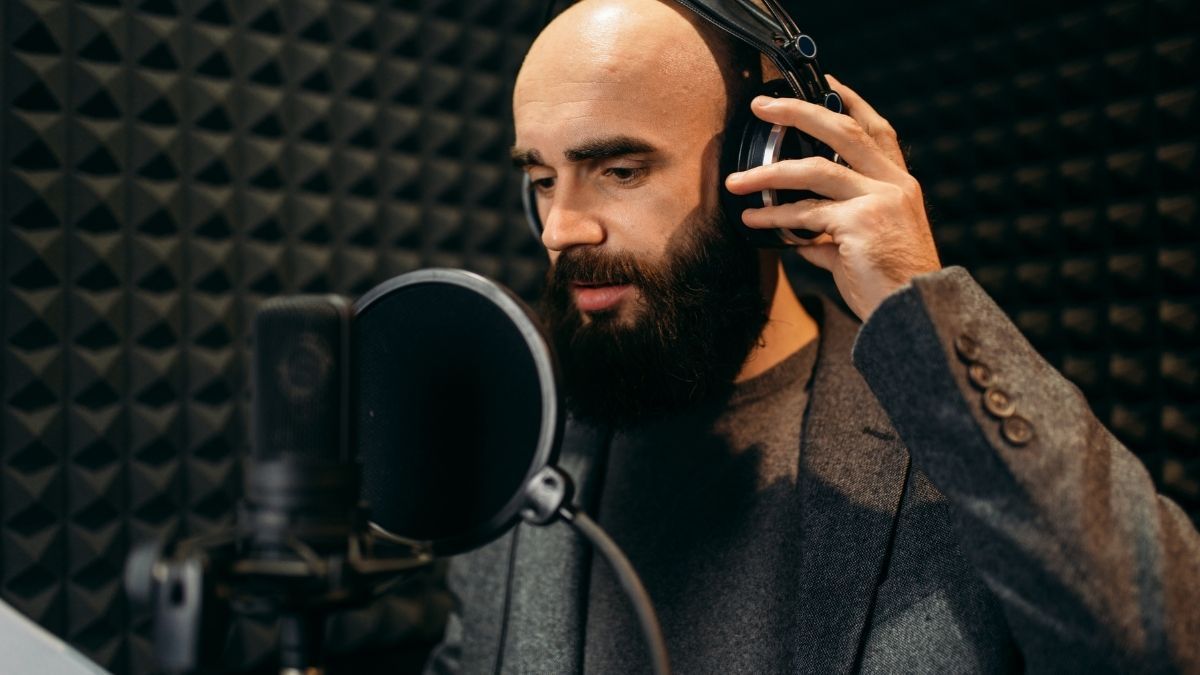Mastering the French accent: 10 Essential tips to speak like a native

Imagine strolling through the charming streets of Paris, effortlessly blending in with the locals as you converse in flawless French. Mastering the French accent is more than just mimicking sounds; it’s about capturing the essence of the language and culture. Whether you’re a beginner seeking to refine your skills or an advanced student wanting to polish your pronunciation, achieving a native-like accent is within your reach. In this guide, we’ll share 10 essential tips that will transform your speaking abilities and enhance your confidence. From understanding the nuances of vowel sounds to mastering the rhythm and intonation patterns unique to French, each tip is designed to help you sound authentic and engaged. Get ready to unlock the secrets of French phonetics and immerse yourself in the beauty of this romantic language. Let’s embark on this linguistic journey together!
The Importance of Accent in French
Mastering the French accent is crucial not only for clear communication but also for cultural immersion. When you speak French with a strong accent, it can sometimes hinder understanding, despite your grammar and vocabulary being correct. A native-like accent facilitates smoother conversations and helps you connect with native speakers on a more personal level. This is especially important in French, where nuances in pronunciation can significantly alter meanings. By refining your accent, you demonstrate respect for the language and its speakers, which can lead to more enriching and authentic interactions.
Speaking with a native-like accent also boosts your confidence. When you know that you sound closer to a native speaker, you’re more likely to engage in conversations and practice your skills. This increased confidence can propel you to take more risks in your language learning journey, such as participating in discussions, asking questions, and even making mistakes. These experiences are invaluable for your growth and proficiency in French.
Moreover, mastering the French accent opens doors to a deeper appreciation of French culture. The way words are pronounced is often tied to the cultural context, and by learning the accent, you gain insights into the history, values, and traditions embedded in the language. This cultural competence enriches your overall experience and makes your language learning journey more rewarding and enjoyable.
Key Differences Between French and English Pronunciation
One of the primary differences between French and English pronunciation lies in the articulation of sounds. French is known for its nasal vowels, which do not exist in English. These vowels are produced by allowing air to escape through the nose, giving them a unique resonance. For example, the nasalized 'an' in "sans" (without) requires a different mouth and nasal position than any vowel sound in English. Understanding and practicing these nasal vowels is essential for achieving a native-like French accent.
Another key difference is the treatment of consonants. In English, many consonants are strongly articulated, while in French, they are often softer and less aspirated. For instance, the 'p' in "Paris" is pronounced without the strong burst of air that accompanies the English 'p.' Similarly, the French 'r' is guttural, produced at the back of the throat, unlike the English 'r,' which is pronounced with the tongue closer to the roof of the mouth. These subtle distinctions can significantly affect your overall pronunciation.
French also places a greater emphasis on vowel sounds, with many words ending in vowels or vowel-like sounds. This can be challenging for English speakers, who are accustomed to consonant-heavy endings. For example, the word "beau" (beautiful) ends with a long 'o' sound, requiring a smooth and rounded finish. Paying attention to these vowel sounds and practicing their correct articulation can help you sound more authentic.
The Role of Intonation in French Speech
Intonation plays a vital role in French speech, adding melody and meaning to the language. Unlike English, where intonation patterns often rise and fall sharply, French intonation tends to be more subtle and fluid. This melodic quality is achieved through a series of rising and falling tones that convey emotions, questions, and statements. For example, in a yes/no question, French speakers typically raise their pitch at the end of the sentence, whereas in English, the pitch might rise more dramatically.
Understanding and mastering French intonation patterns can greatly enhance your spoken French. Intonation helps convey nuances such as politeness, surprise, or emphasis. For instance, the way you stress certain words can change the meaning of a sentence. In French, emphasis is usually placed on the last syllable of a phrase or word, which can be different from the stress patterns in English. Practicing these intonation patterns can make your speech sound more natural and engaging.
Additionally, intonation in French is closely linked to sentence structure and rhythm. French sentences often flow smoothly, with a rhythmic balance that gives the language its characteristic lilt. Paying attention to this rhythm and practicing it in your speech can help you achieve a more native-like accent. Listening to native speakers and mimicking their intonation patterns is an effective way to internalize these nuances and improve your overall pronunciation.
Essential French Sounds: Vowels and Consonants
French vowels present a unique challenge for English speakers, primarily due to the presence of nasal vowels and the subtle differences between similar sounds. Nasal vowels, such as those in "pain" (bread) and "vin" (wine), require practice to master. These sounds are produced by allowing air to flow through the nose while pronouncing the vowel, creating a resonance that is distinct from oral vowels. Practicing these nasal sounds can significantly improve your French accent.
French also has several vowel sounds that do not have direct equivalents in English. For example, the 'u' in "lune" (moon) is pronounced with rounded lips and a high tongue position, which can be challenging for English speakers. Similarly, the 'eu' in "peur" (fear) requires a specific tongue and lip configuration. To master these sounds, it’s essential to practice them regularly and seek feedback from native speakers or language instructors.
Consonants in French also require careful attention. The French 'r' is a guttural sound produced at the back of the throat, unlike the English 'r,' which is produced with the tongue closer to the roof of the mouth. Additionally, many French consonants, such as 't' and 'd,' are pronounced with less aspiration than their English counterparts. Practicing these consonant sounds and paying attention to their articulation can help you achieve a more authentic French accent.
Common Pronunciation Mistakes to Avoid
One common mistake English speakers make when learning French is over-pronouncing final consonants. In many cases, final consonants in French are silent, such as the 's' in "Paris" or the 't' in "chat" (cat). Pronouncing these consonants can make your speech sound unnatural and can confuse listeners. To avoid this mistake, familiarize yourself with common silent consonants and practice omitting them in your speech.
Another frequent error is mispronouncing nasal vowels. English speakers often substitute nasal vowels with their closest English equivalents, which can alter the meaning of words. For example, mispronouncing "pain" (bread) as "pan" can create confusion. To master nasal vowels, practice them in isolation and in context, paying attention to the nasal resonance and mouth position.
Stress patterns can also pose challenges for English speakers. In French, stress is typically placed on the last syllable of a word or phrase, unlike in English, where stress can fall on any syllable. Misplacing stress can make your speech sound unnatural and can affect comprehension. To avoid this mistake, practice stressing the correct syllables in words and sentences, and listen to native speakers to internalize the natural rhythm of French.
Techniques for Practicing Your French Accent
Practicing your French accent requires a combination of listening, speaking, and feedback. One effective technique is shadowing, where you listen to a native speaker and repeat what they say, mimicking their pronunciation, intonation, and rhythm. This method helps you internalize the sounds and patterns of French and can significantly improve your accent over time. Try shadowing different speakers to expose yourself to various accents and speaking styles.
Recording yourself speaking French and comparing it to native speakers is another valuable technique. This allows you to identify areas where your pronunciation differs and make adjustments accordingly. Pay attention to vowel and consonant sounds, intonation patterns, and rhythm. Regularly recording and reviewing your speech can help you track your progress and maintain motivation.
Seeking feedback from native speakers or language instructors is also crucial. They can provide insights into specific areas that need improvement and offer tips for refining your accent. Participate in language exchange programs, join French-speaking groups, or take classes with native instructors to receive constructive feedback and practice your skills in real-life situations.
Utilizing Audio Resources and Language Apps
Audio resources and language apps can be powerful tools for improving your French accent. Listening to French podcasts, audiobooks, and music exposes you to authentic pronunciation, intonation, and rhythm. Try to immerse yourself in French audio content daily, and actively listen to the way words and sentences are pronounced. This passive exposure can help you internalize the sounds of French and improve your accent over time.
Language apps like Duolingo, Babbel, and Rosetta Stone offer pronunciation exercises and feedback that can help you refine your accent. Many of these apps include speech recognition technology that evaluates your pronunciation and provides instant feedback. Use these apps regularly to practice essential sounds, intonation patterns, and conversational phrases. The interactive nature of these apps makes learning engaging and effective.
Additionally, YouTube channels and online courses dedicated to French pronunciation can be valuable resources. Many language experts and native speakers create content specifically designed to help learners improve their accent. Follow these channels, participate in their exercises, and apply their tips to your practice routine. Combining these online resources with regular speaking practice can accelerate your progress and help you achieve a more native-like French accent.
The Impact of Regional Accents in France
France is home to a rich tapestry of regional accents, each with its unique characteristics and charm. From the Parisian accent to the Southern French accent, these regional variations can influence how French is spoken and understood. While mastering the standard French accent is important, being aware of regional accents can enhance your understanding and appreciation of the language.
The Parisian accent, often considered the standard, is characterized by its clear and precise pronunciation. It is widely used in media, education, and formal settings. However, other regions, such as Provence, Brittany, and Alsace, have distinct accents that reflect their local culture and history. For example, the Southern French accent, known for its melodic and relaxed intonation, can be quite different from the more clipped and nasal Parisian accent.
Understanding regional accents can also help you navigate conversations with native speakers from different parts of France. It can make you more adaptable and improve your listening skills. If you plan to travel or live in a specific region, familiarizing yourself with the local accent can enhance your communication and make your interactions more authentic. Embrace the diversity of French accents and use them as a tool to deepen your linguistic and cultural knowledge.
Engaging with Native Speakers for Real-World Practice
Engaging with native speakers is one of the most effective ways to improve your French accent. Real-world practice allows you to apply what you’ve learned in a natural context and receive immediate feedback. Language exchange programs, where you partner with a native French speaker who wants to learn your language, can be mutually beneficial. These exchanges provide opportunities to practice speaking, listening, and refining your accent.
Joining French-speaking clubs, attending meetups, or participating in cultural events can also provide valuable practice. These settings encourage spontaneous conversations and help you become comfortable speaking French in various situations. Don’t be afraid to make mistakes; native speakers appreciate your effort and can offer constructive feedback to help you improve.
Traveling to French-speaking countries or regions immerses you in the language and culture, providing countless opportunities to practice your accent. Whether ordering food, asking for directions, or engaging in casual conversations, real-world interactions push you to use your skills and adapt to different accents and speaking styles. Embrace these experiences as opportunities for growth and enjoy the journey of mastering the French accent.
Conclusion: Embracing Your Journey to a Native-Like Accent
Mastering the French accent is a rewarding and transformative journey that goes beyond merely mimicking sounds. It’s about embracing the culture, rhythm, and nuances of the language. By understanding the importance of accent, recognizing the key differences between French and English pronunciation, and practicing essential sounds, you can make significant strides toward sounding like a native speaker.
Avoiding common pronunciation mistakes, utilizing effective practice techniques, and leveraging audio resources and language apps can accelerate your progress. Exploring the impact of regional accents and engaging with native speakers enriches your learning experience and helps you adapt to various speaking styles. Each step you take brings you closer to achieving a more authentic and confident French accent.
Remember that mastering the French accent is a continuous process that requires patience, dedication, and a willingness to learn from your mistakes. Celebrate your progress, no matter how small, and stay motivated by immersing yourself in the beauty of the French language and culture. Embrace the journey with enthusiasm and curiosity, and soon you’ll find yourself conversing effortlessly and confidently with native speakers. Bon courage!























